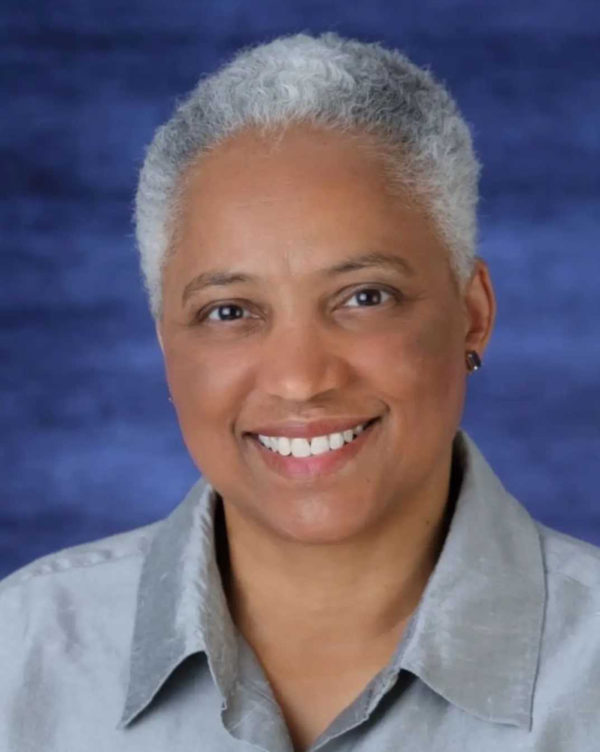Editor’s note: This story first appeared as a newsletter alongside a roundup of Technical.ly’s best reporting from the week, job openings and more. Subscribe here to get updates on Delaware tech, business and innovation news in your inbox on Thursdays.
The matchup is between Democrats Kathleen McGuiness, the incumbent, and Lydia York, a Pike Creek attorney who threw her hat into the ring in May. Why? As York says, “Delaware voters deserve a choice.”
McGuiness, as you are probably aware, was convicted in July by a Kent County Jury for official misconduct and conflict of interest. McGuiness maintains her innocence and has begun the appeals process. This week, a judge upheld two of her three misdemeanors. McGuinness has not yet been sentenced. Under her tenure, the office has also been criticized for uneven charter school audits.
The Delaware Democratic Party has called on McGuiness to resign, but it will ultimately be up to Delaware’s Democrat voters.
York is giving voters that choice. We had questions. Here’s what she said.
(This conversation has been edited for length.)
###
Technical.ly: We’ve heard a lot about the state auditor position lately, but what exactly is it?
Lydia York: The state auditor is a constitutional office in Delaware, responsible for conducting post audits, meaning a review of what happened — what actually happened — on other state agencies. In particular, this office is charged with auditing the school districts in this state. And that charge in particular is an area where the state auditor hasn’t been as effective as I think they ought to be.
I think it’s important to know what actually happened [to school funding] because at the end of the day, at the state level, most of the state’s dollars go into education.
And education is highly politicized.
One of the reasons that this is an elected office is because all the obstacles that will be encountered by the folks doing this work, it’s going to be potentially political, with resistance. Political issues need to be fixed by politicians.
Are there known issues you plan to address?
It’s hard to say because we don’t know. I think it’s important to get this office functioning in its actual role to be able to figure it out. Over time, people have recognized that the job’s not getting done, and it’s become a source of frustration, and rightfully so. Because if one part isn’t working, then, like any living thing, it’s got to make adaptations that are going to be either efficient or productive.
Was this something you wanted to do before the misconduct trial?
I’ve been active in the party for quite some time. I had never really given serious thought to running for office. A suggestion was made by a good close political friend — ‘Why don’t you run for state auditor?’ I started on a two-week odyssey thinking about that, and after about two weeks, I said, ‘You know, I think this is a race I can win.’ That’s how the campaign unfolded, relatively late in the season for statewide races.
Obligatory question: If you become state auditor, how will it impact tech in Delaware?
[Focusing on tech] might not be my primary job, but it might come up in a performance audit. Our schools are not equally situated when it comes to technology. I don’t ever pretend to have the answers for these things. I’m better at asking the questions. But I think that’s a question that we ought to ask: Are we doing what we ought to be doing with regards to technology? And let’s just take the lowest threshold of technology being employed in the classroom — the teacher is probably doing some assignments that are done with computers, and that’s going to introduce us to other questions around access to technology.
What would you say to someone who doesn’t think voting in the primaries is important?
Your vote matters. If you don’t like the politicians, they’re not going to go away if you don’t vote them out. We don’t run on a cycle where the good guys are going to win by the end of the season, or by the end of next season. If you don’t like who your reps are now, you’ve got to keep voting to get who you like. If you don’t vote, you’re basically saying someone else gets to make that decision for you.
The Delaware primaries are on Sept. 13, with early voting happening now.
Join the conversation!
Find news, events, jobs and people who share your interests on Technical.ly's open community Slack

Delaware daily roundup: Delmarva Power vendor stats; DelDOT's $15M federal grant; 50 best companies to work for

Delaware daily roundup: Over 4,000 Black-owned businesses uncovered; Dover makes rising cities list; a push for online sports betting

UD's STAR Campus gears up for a major addition in biopharma


